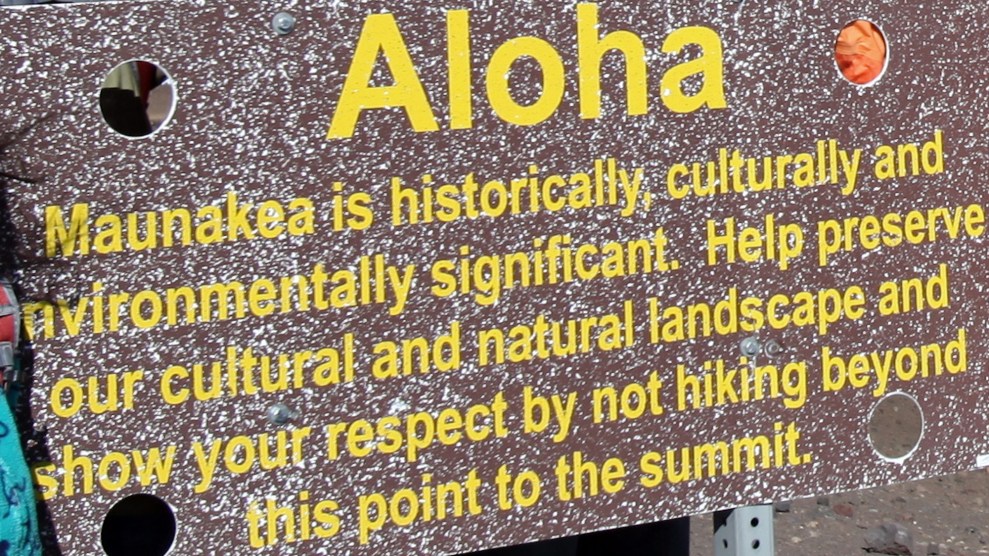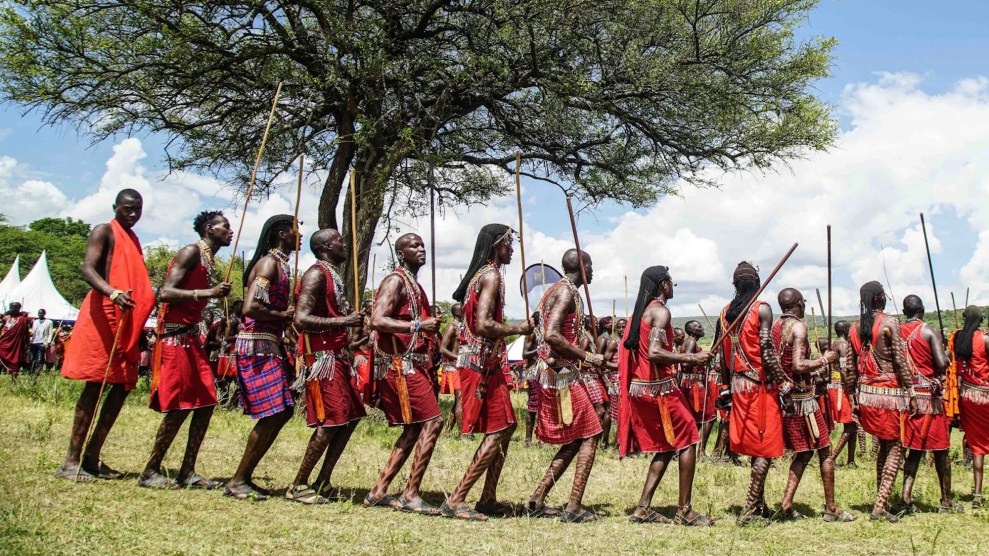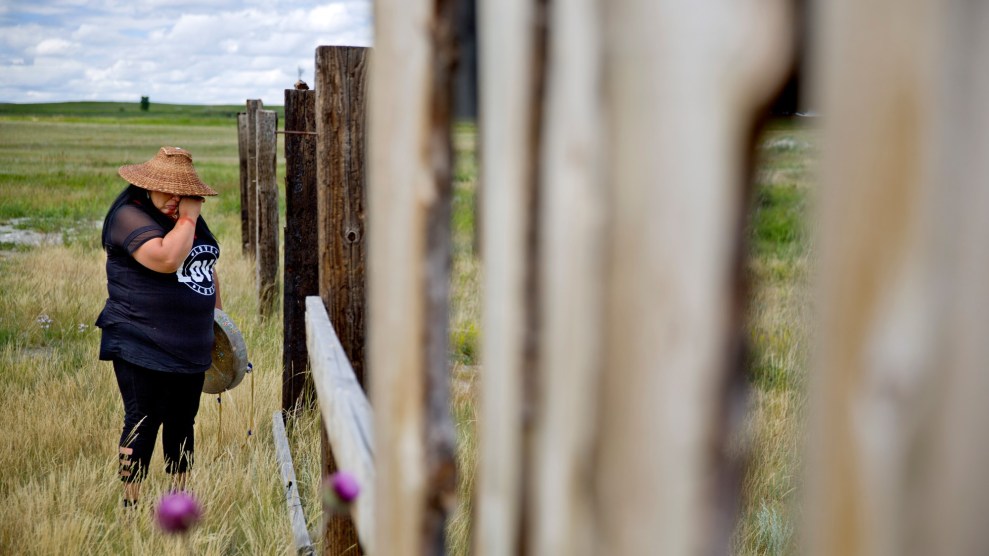
A sign in the Mauna Kea area, from a photo taken in 2016.Wikimedia Commons
This story was originally published by Canada’s National Observer and is reproduced here as part of the Climate Desk collaboration.
Opponents are calling out Canada over its role in the development of a controversial telescope on Hawaii’s tallest volcano, Mauna Kea, citing human rights abuses.
On July 14, opponents of the Thirty Meter Telescope—including Kahea, a Hawaiian environmental organization; Ziibiing Lab, a University of Toronto research collaboratory focusing on Indigenous politics; and the Transnational Law and Racial Justice Network, a University of Windsor law network that focuses on how Canadian law impacts people’s lives internationally—submitted a petition to the United Nations arguing the telescope violates Indigenous rights.
The petition slams the National Research Council, Canadian astronomy organizations and Canadian corporations tapped to construct parts of the TMT, which, if built, would be the second-largest telescope in the world. The petition requests the Committee on the Elimination of Racial Discrimination, the UN body that monitors racial discrimination within countries, urge Canadian stakeholders to cease funding and divest from the telescope project.
China, India, Japan, and the United States also have stakes in the project.
The summit of Mauna Kea, which holds the utmost cultural, social, and religious importance for Kanaka Maoli, the Indigenous people of Hawaii, has been developed by industrial projects like scientific observatories and telescopes and the road infrastructure needed to maintain them.
Development has left the fragile ecosystems of its summit desecrated and destroyed, according to Kahea’s website.
For example, there are 21 telescopes and 13 observatories on Mauna Kea’s summit alone. The new telescope’s proposed site is on the mountain’s culturally significant northern plateau, which remains pristine and undeveloped, Uahikea Maile, an advocate and the political science professor who runs the Ziibiing Lab, told Canada’s National Observer.
It’s made the stakes even higher for Native Hawaiians who are fighting to protect the mountain and the cultural practices tied to it. “Enough is enough,” Maile said. He and the petition’s other backers launched their call on the fourth anniversary of a Native Hawaiian blockade of the telescope’s construction.
Maile was on the ground for the blockade, where 38 elders were arrested in a show of force that saw police from across Hawaii, including the National Guard, flock to the protest.
The state spent $11 million (US) “criminalizing Native Hawaiians standing up for their sacred mountain, and their relationships to [Mauna Kea],” he said.
Following the blockade, Indigenous land defenders, including members of Kahea, were surveilled and investigated for financially supporting the blockade, according to the petition.
The proposed telescope is part of a new, bigger generation of technology, allowing astronomers to study the cosmos in greater detail than ever before, often in search of exo-planets and extraterrestrial life, according to Maile.
It’s caused scholars and advocates to draw comparisons between colonization 600 years ago and today, as astronomers are looking for new worlds that can one day be discovered and colonized.
“The techno-scientific conquest of other planets and life hinges upon the colonial conquest of Indigenous Peoples and Indigenous sacred sites on this planet,” he said.
In 2021, professional and academic astronomy organizations released a statement saying they would only support the project with Native Hawaiian consent. However, since that statement, the astronomy organization that represents them has yet to withdraw its funding or support, according to the petition.
“In three years, nothing has changed, and that infuriates me,” Maile explains. “But the truth of the matter is I’m not surprised because this is a project that these folks want at all costs.
“On the ground, the truth of the matter is socially, the opposition is deep and widespread.”
Native Hawaiians who oppose the TMT contribute an important conversation to the future of the project, Dr. Robert P. Krishner, executive director of the Thirty Meter Telescope International Observatory, the non-profit organization developing the project, told Canada’s National Observer in a statement.
Since 2019, the organization has changed its approach to community engagement and has genuine, in-depth conversations with those who oppose the project focused on healing divisions, he said.
“Through discussions, the people of Hawaiʻi and the Native Hawaiian community will decide whether TMT goes forward on Mauna Kea,” Krishner added.
Canada’s National Observer contacted the National Research Council and the Canadian Astronomical Society but didn’t hear back by publication.
















